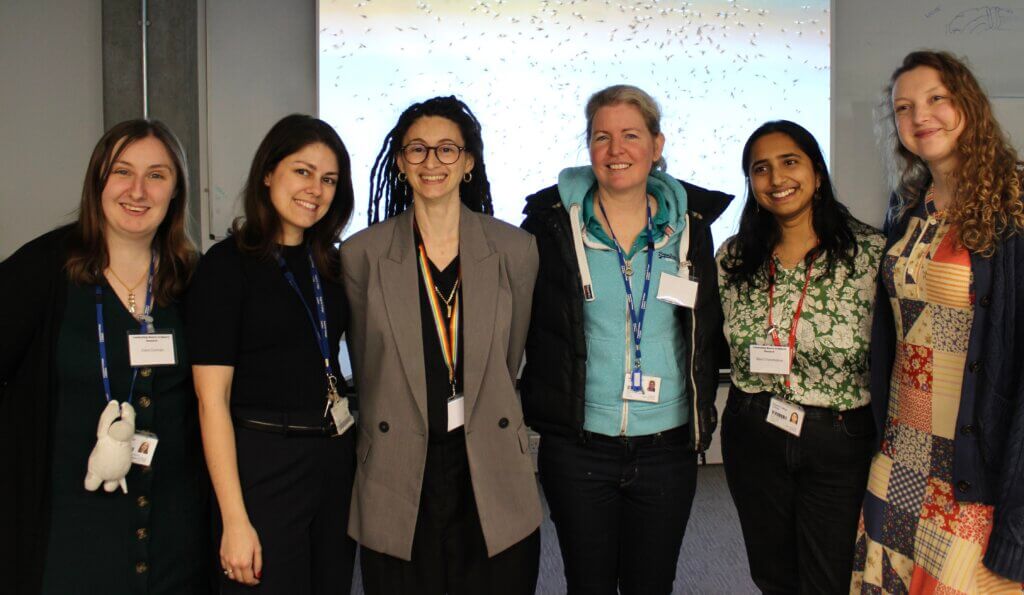Celebrating womxn in malaria research with the Imperial Malaria Network

Last year, I joined the Imperial Malaria Network as a co-leader, alongside Dr. Lauren Cator and Dr. Penny Hancock. We organised the ‘Celebrating Womxn in Malaria Research’ event at the Imperial College South Kensington Campus on March 8th, for International Women’s Day. We had a brilliant lineup of female scientists who have all made invaluable contributions to malaria research happening across the Imperial Malaria Network.
We started with a talk from, Dr. Lauren Cator, a Senior Lecturer, who introduced a key subject of malaria research: the mosquito. She used beautiful visuals to outline elements of mosquito biology that are critical to understand the role of this vector in malaria transmission.
Postdoctoral Researcher, Dr. Valerie Ukegbu Chiamaka, gave a deep dive into the life of the malaria parasite, Plasmodium, dissenting the stages of its life cycle, and looking at its relationship with both the mosquito vector and the human hosts.
I spoke about the history of vector control in the context of malaria. Vector control is a method used to reduce or eradicate vectors that transmit diseases. I described the different forms of vector control: environment management, which involves changes in both the environment and human habits; biological methods, such as introducing natural predators or competitors of a target vector species in a natural habitat; chemical methods, such as insecticides; and genetic control which led to the explanation of Mendelian and super-Mendelian inheritance, the latter being the basis of gene drive systems.
I was followed by Nilani Chandradeva, a PhD student in Epidemiology, Evolution & Control of Infectious Diseases, who shared her experience from working as a field entomologist in the Bijagos Islands archipelago of Guinea-Bissau. We learned the obstacles one might face and considerations to be made when conducting research as an outsider to the community.
Dr. Athina Georgiadou and Dr. Claire Dunican, Post-doctoral Research Fellows, took over to detail the history of malaria treatments, covering disease manifestations, pathogenesis, and the latest on malaria vaccines.
Our penultimate talk was from Dr. Kate Willis, Research Associate and part of Target Malaria’s modelling team, demonstrating the value of modelling vector control methods in multigenerational cage trial experiments. We ended the day with a talk from Dr. Penny Hancock, Lecturer in Biostatistics / Epidemiology (Non Clinical), also from Target Malaria, who extended the importance of mathematical modelling in making predictions on the effect of genetic strategies on natural mosquito populations.
This event created an opportunity for womxn working in different fields of malaria research to create connections and it represented a great platform for curious attendees who want to learn more about this area of research. This was the perfect way to celebrate International Women’s Day. I hope the Imperial Malaria Network can continue to be the ground for interdisciplinary discussions for womxn, and anyone else, in malaria research.

